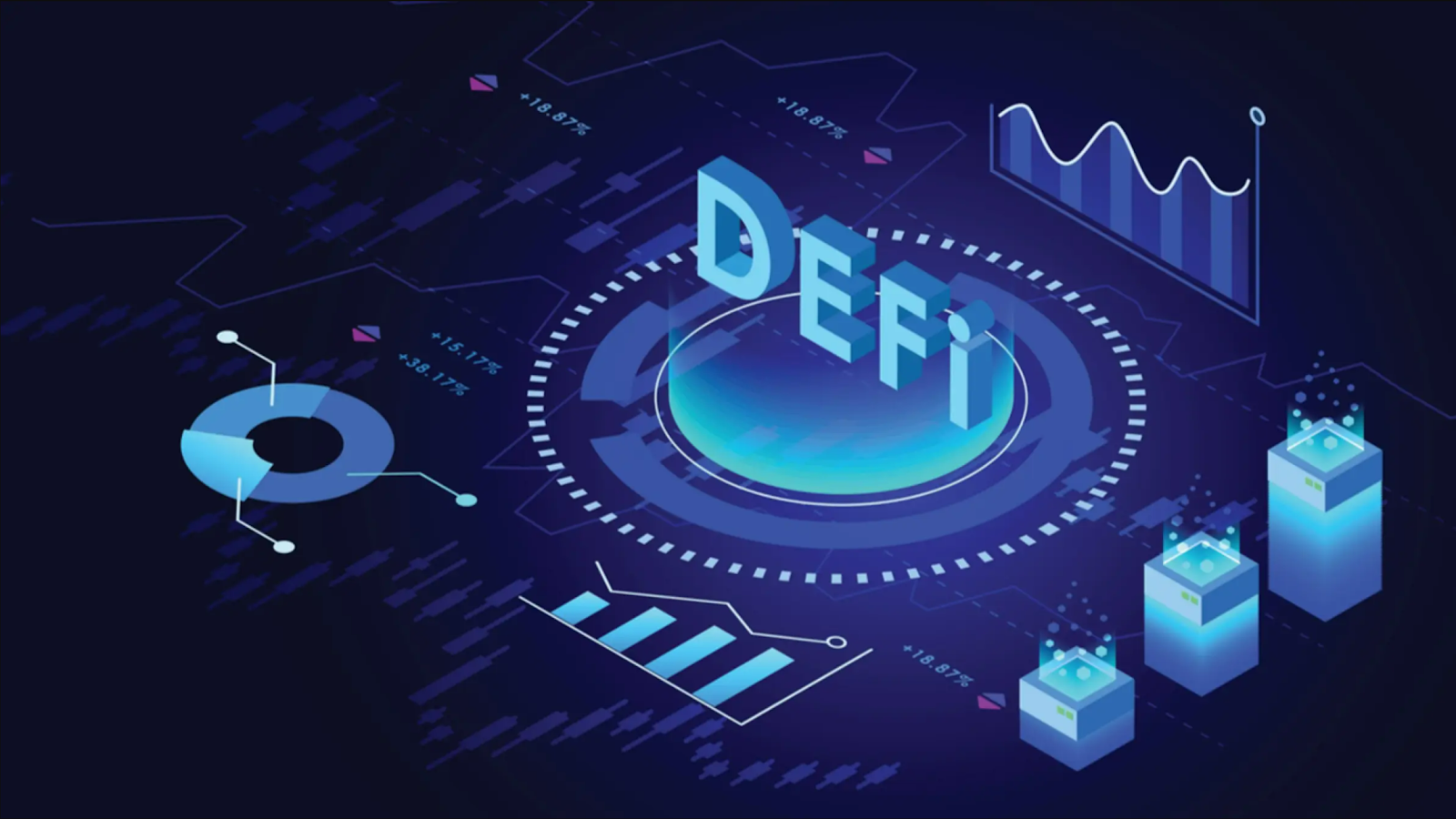
The fundamental principles of global finance are beginning to rattle.
For centuries, traditional finance (TradFi) has depended on intermediaries—banks, brokers, and regulators—to facilitate trust, regulate the flow of money, and extract fees. A bold new paradigm is emerging: **decentralized finance (DeFi)**, due to a surge in blockchain-based technologies.
Is this the conclusion of conventional finance as we know it? Not entirely. However, the future is being rewritten, one protocol at a time, block by block.
In this post, we provide a prediction of the potential appearance of a **decentralized economic future** and the potential for it to significantly alter the global financial system.
📉 The Gradual Decline of TradFi’s Monopoly
Although banks continue to dominate global finance, their influence is diminishing:
* Traditional systems are plagued by high fees, sluggish settlements, and limited transparency. Particularly in the Global South, millions of individuals are **unbanked or underbanked**.
* During economic crises, centralized institutions frequently fail to provide adequate services to the average citizen (2008, 2020, 2023).
* The demand for alternatives is being driven by the increasing skepticism toward fiat currencies and centralized authorities.
Conversely, **DeFi provides transparent, programmable, and permissionless access to financial tools at any time and in any location.
🧱 The Emergence of the Decentralized Economy
Technologies such as: are facilitating the development of decentralized economies.
* **Smart contracts** (automated agreements without intermediaries) * **Stablecoins** (digital dollars without banks) * **DAOs** (Decentralized Autonomous Organizations for governance) * **Tokenized assets** (from real estate to carbon credits) * **Self-sovereign identity and on-chain reputation systems**
These instruments, when combined, allow entire financial ecosystems to operate **without centralized control**.
🔮 Future Prediction: What Is Next?
1. **DeFi Defaults in Emerging Markets**
DeFi provides a lifeline to countries that are afflicted by inflation, currency controls, or inadequate banking infrastructure. Anticipate a significant increase in adoption in regions such as:
* **Nigeria, Argentina, Venezuela**: For inflation hedging and stablecoin remittances. * **Kenya, Philippines**: For play-to-earn income, mobile lending, and yield generation.
* **Ukraine, Turkey**: As secure havens during periods of conflict or currency collapse.
Similar to the way in which they eschewed landlines in favor of mobile devices, these regions may completely forego traditional banking.
2. **Traditional Banks Transition to “On-Chain”**
It is probable that banks and financial institutions will implement the following measures in order to remain pertinent:
* Providing staking services and **custodial wallets**.
* The issuance of **tokenized versions of bonds, loans, and deposits**.
* Providing liquidity and yield options by integrating with **DeFi protocols**.
Consider it as **TradFi enclosed in a Web3 skin**—familiar institutions operating on unfamiliar rails.
3. **Nation-States Establish Blockchain-Based Economies**
Because of the proliferation of **CBDCs (Central Bank Digital Currencies)** and sovereign stablecoins, anticipate the following:
* Cross-border CBDC payments that circumvent SWIFT or USD intermediaries. * State-run DeFi platforms for domestic finance and welfare distribution. Blockchain-based credentials are associated with social benefits and digital identity.
Decentralization will not be limited to the private sector; it will become a **national infrastructure trend**.
4. Corporations are replaced by decentralized autonomous organizations (DAOs) in critical sectors.
**Protocol-governed organizations** will emerge for the following reasons:
* Investment (e.g., decentralized VC funds)
* Insurance (smart contracts govern pooled risk)
* Community-owned revenue sharing for media, gaming, and content platforms
In numerous instances, these organizations will surpass conventional organizations in terms of transparency, efficiency, and user alignment.
Barriers to the Decentralized Future
Challenges persist, despite the momentum:
* **Scalability and UI/UX**: DeFi must be as user-friendly as mobile banking applications.
* **Security risks**: Trust continues to be undermined by exploits and smart contract flaws.
* **Regulatory friction**: Governments may resist relinquishing control over money and markets.
* **Fragmentation**: Users and developers may be perplexed by competing protocols and standards.
Still, resistance is often outpaced by innovation, particularly when demand is digitally native, urgent, and global.
🌍 The Potential of a Fully Decentralized Economy
Can you envision a future, perhaps in 2040, in which:
* Stablecoins are utilized to compensate employees through smart contracts. * An on-chain reputation insignia replaces your credit score.
* Instead of mutual funds, retirement funds are invested in DAOs.
* Tokenized, community-governed treasuries are used to fund public goods, such as infrastructure or renewable energy. * Digital wallets affiliated with proof-of-residency NFTs are used by citizens to vote on local policies.
This is not science fiction. It is the logical outcome of **finance without friction, control without centralization, and coordination without borders**.
Final Thought: Evolution or Termination?
Therefore, is it the **demise of conventional finance**?
Not entirely. However, the definition of “traditional” is evolving rapidly.
We are currently observing the emergence of a **parallel financial system**, which has the potential to:
* Either fully supplant them in regions and sectors where they have failed, or integrate them with legacy structures to create a hybrid model (CeDeFi).
TradFi’s ability to adapt or become obsolete will be determined by the upcoming decade. One thing is certain: the **decentralized economy** is no longer a fringe endeavor; it is a force that is influencing the future of global finance.
***In your opinion, will traditional finance endure, undergo a transformation, or fail altogether? Let us engage in a conversation below.**
Leave a Reply